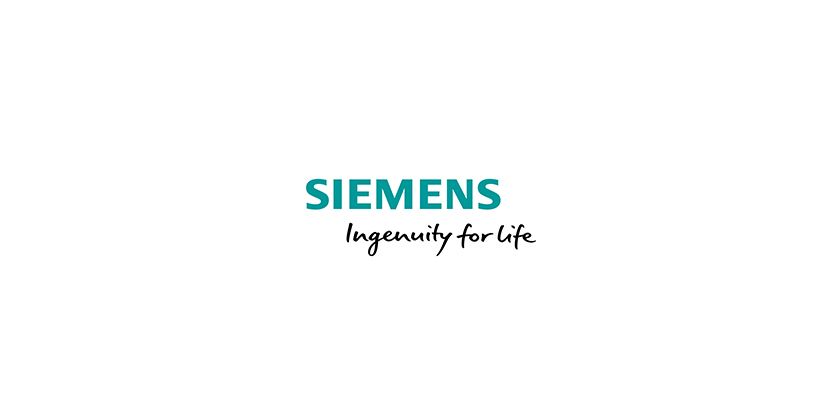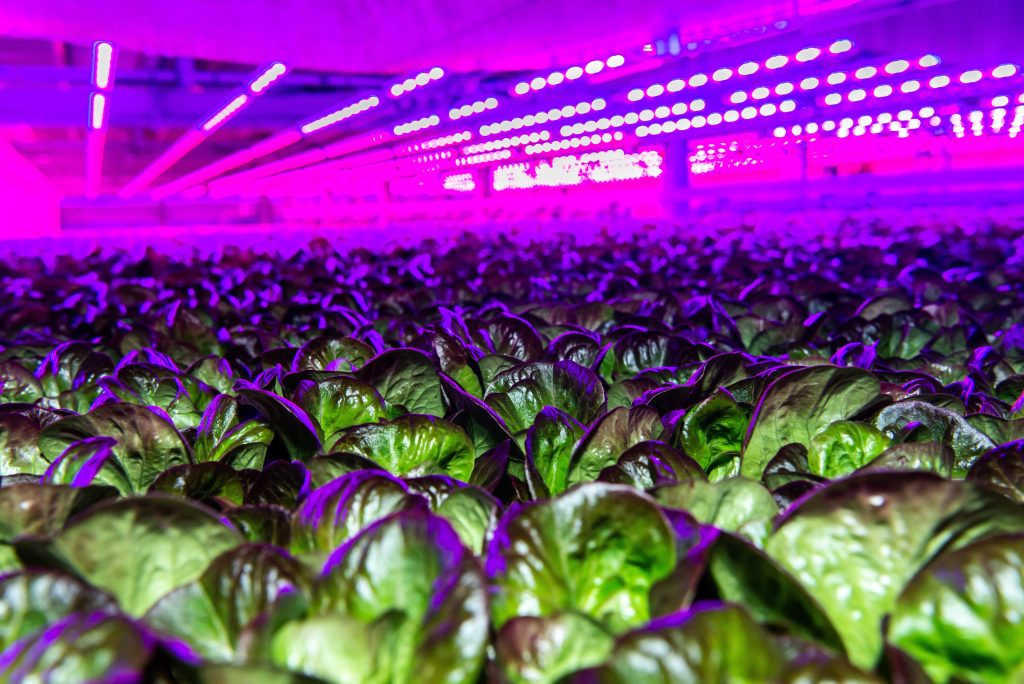Vertical Farming: Siemens Ensures Perfect Plant Growth

April 13, 2023
Vertical farming refers to food production in enclosed spaces. In contrast to conventional greenhouses, however, with indoor farming the environmental influences that the plants are exposed to can be precisely determined. The environment where the plants grow is monitored around the clock: LEDs control how much light the plants receive and the temperature, humidity, CO2 content in the air, and nutrient content in the soil can be modified to foster ideal plant growth. It’s also called vertical farming, because the plants are grown in a type of hydroculture called hydroponics in (vertical) pallets stacked on top of each other. This allows the same amount of food to be produced on a much smaller area, and the yield is significantly larger compared to a traditional agricultural area of the same size.
Growing lettuce in the desert using environmentally friendly methods? Yes, it’s possible. Looking ahead, it’s important to start developing new concepts for agriculture. By 2050, 10 billion people are expected to live on our planet, and they’ll all want to be fed. But new agricultural land is becoming scarce, and more and more farmers are struggling with water shortages. Indoor farming is therefore an intelligent solution for reliably and energy-efficiently creating perfect growing conditions for plants. This will help meet the growing challenges of food supply and food security.

Vertical farming defies climate change
People’s environmental awareness is increasing due to the already obvious consequences of climate change. Today many people are much more attentive to how and where their food is produced. Transparent guarantees of origin and a low CO2 footprint are playing an increasingly important role in purchasing decisions. Using blockchain technology, indoor farming makes it possible to transparently trace the path of a plant over its entire lifecycle, from the farm to the kitchen. Indoor farming can also be practiced year-round, unhindered by weather changes, cold snaps, and heat waves. And with indoor farming, production can shift to the immediate vicinity of consumers. As the long transport routes from the cultivation area to the consumers are eliminated, we’ll not only receive fresher products, the supply chains will also become more resilient. At the same time, the reduced transportation results in fewer climate-damaging emissions. In addition, indoor farming can be practiced anywhere in the world, regardless of the local climatic conditions. Until now, food has only been produced where the climatic conditions are favorable and sufficient space is available.
The usable areas for traditional agriculture are limited. Many regions on the planet simply aren’t suitable, including deserts, polar regions, and areas that are too mountainous. But we already need to increase our agricultural activity to ensure food security for the growing population. Meanwhile, the soil quality of many conventional agricultural areas is deteriorating as a result of overuse. Climate change and the associated impacts are leading to more and more crop failures. These conditions are creating a downward spiral whose momentum continues to grow.
Indoor farming, on the other hand, has recorded an annual market growth of 25 percent. The market potential for automation and digitalization solutions for indoor farming alone amounts to roughly €3 billion euros.
Scaling vertical farming: 80 Acres Farms and Siemens
The benefits of digitalized vertical farming are even more evident in a recent project conducted by Siemens and 80 Acres Farms, a leading indoor farming company based in Ohio (USA). Through indoor farming, 80 Acres Farms can produce 300 times more food per square meter than a comparable piece of agricultural land using traditional arable farming methods. Compared to conventional agriculture, the plants require 95 percent less water. Of course, indoor farming consumes significantly more energy than growing in an open field. However, the company uses 100 percent renewable energy to run their farms.
Siemens is helping 80 Acres Farms digitalize and scale their indoor farms. Specifically, the project’s focus is on developing the loop platform on which all the company’s farms are based. The platform was developed by its subsidiary, Infinite Acres. A holistic approach was a prerequisite for scaling the indoor farms. Siemens provided power distribution equipment and energy and building management technologies that monitor the fire, security, and power distribution systems via a single interface. Our automation and digitalization solutions are also being used to optimize the indoor farms’ cultivation and harvesting processes. Robotics and automation optimize production, while edge devices and human-machine interfaces monitor crop management and control the environmental conditions. The project is supported by equity financing from Siemens Financial Services (SFS).





![Guide to the Canadian Electrical Code, Part 1[i], 26th Edition– A Road Map: Section 56](https://electricalindustry.ca/wp-content/uploads/2022/11/Guide-CE-Code-2-768x432.png)




![Guide to the Canadian Electrical Code, Part 1[i], 26th Edition– A Road Map: Section 56](https://electricalindustry.ca/wp-content/uploads/2022/11/Guide-CE-Code-2.png)



